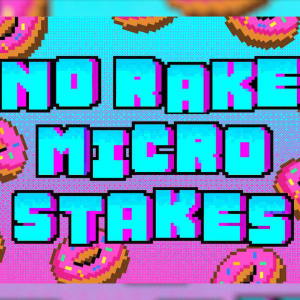
Meditation is to the mind what going to the gym is to the body. It's something that's unquestionable, extremely beneficial and yet many of us don't do it. We tell ourselves that we don't have enough time or enough energy or that we don't need it. We underestimate both the value and the benefits of exercising our mind and our body and we're convinced that it requires a lot more effort than it actually does.
In reality, even the busiest people on earth can probably find those three hours per week required for an effective strength training routine and it's even easier to squeeze 10 minutes of sitting meditation somewhere in our everyday schedule. This is doubly true in the case of poker players, both professionals, and hobbyists because our schedules are either somewhat flexible or we choose to invest our free time in the game which by definition means that we have free time to spare.
Why?
Why is meditation so worthwhile? There're plenty of reasons, many of which are especially important for poker players. First of all, meditation simply makes you happier. According to the article by Dan Gilbert and Matt Killingsworth, published in Sciencemag.org at the end of 2010, we spend on average 47% of our day thinking about something other than the present moment - and it's not good for us.
Using the enormous amount of data provided by the users of 'Trackyourhappiness' iPhone app, the scientist concluded that even when we're doing something tedious or boring (like commuting or grooming) and our mind wanders to a supposedly 'happy place' it still has a negative effect on our overall happiness.
"A wandering mind is an unhappy mind" - the scientists write in the last paragraph of their collaboration. When it comes to increasing our ability to focus on a present moment meditation is just about the best tool that we can use. Five minutes of mindful breathing before that dreaded monthly database analysis, can both make the process more efficient by helping your mind to stay on the task at hand and even change your outlook on the task itself.
Meditation has a number of other important benefits. It's great at reducing stress, which is something that enthusiasts of the variance-heavy game like poker are certainly affected by. Meditation can actually affect the neuroplasticity of your brain helping you with that pesky addiction of scrolling through social media feeds while playing poker. Meditation can even boost your immune system, improve metabolism, help you keep your biological clock running smoothly, and slow down the aging process.

How?
Now that you know why meditation isn't just for monks and hippies let's talk about how to approach it. There are many different types of meditation, some of them more exotic than others. For the purpose of this article, we're going to ignore Tai Chi, Qi-gong or mantra meditation and focus on a bit more practical and popular variations like mindfulness meditation and yoga. One of the easiest ways of getting into meditation would be signing up for a yoga class. Yoga really exploded in popularity in recent years and the social stigma surrounding it has pretty much eroded. Professional MMA fighters use it to improve their mental faculties through breathing practices, work on their mobility and aid the recovery.
Mindfulness meditation is the best 'bang for the buck' option in the world of meditation. It doesn't require you to buy or sign up for anything, all you need is a bit of space, time and will. Space doesn't even have to be particularly quiet or secluded though it certainly helps, especially at the beginning. Here's a rough guide to your first 5 minutes of meditation.
- Remove as many distractions as you can from the place you're currently in. Mute the computer speakers, silence your phone, close the window etc. Don't be too meticulous about it, controlling the stimuli you're subjected to is not essential to the process of meditation but it will certainly help if you're a beginner.
- Assume the correct position. Grab a pillow or a blanket and place it next to a wall, sit with your hips and knees open, maintain the natural curvature of the lumbar spine, retract your shoulder blades slightly and stabilize them against the wall, make sure the back of your head is also stabilized, lift your chin slightly. In short, keep your spine straight. This is also possible while simply sitting in a chair or on your favorite couch so don't stress about the proper pose too much, again this is not an essential part of meditation but proper pose helps. It's also physiologically motivated, straight spine allows for the cerebral fluid to flow freely for example.
- And now for the essential part. Mindfulness meditation is about observing your thoughts and not reacting to them. It's not about suppressing the mental noise or achieving control over it, it's about realizing that it exists and gaining insight through that. The way you achieve that is by focusing on an anchor, which is usually your breathing cycle. Inhale through your nose for three to five seconds, take a quick pause to exercise awareness and then exhale through your nose or mouth for the same amount of time it took you to inhale the air. If a thought comes, don't try to fight it, acknowledge it and focus back on the anchor.

Meditation, much like no-limit holdem, is a "5 minutes to learn, a lifetime to master" kind of a thing and the benefits are proportional to the time and effort you're willing to invest in it. Fortunately, just like with physical exercise, you don't actually need to devote that much time to meditation to get the bulk of the benefits, you just have to stay consistent with it. Include 5-10 minutes of meditation in your morning routine, add another 5 or so minutes before every poker session and that should already provide you with a measurable edge over similarly skilled players who fail to include meditation in their routine, plus you should be able to enjoy many of the other benefits that we discussed above.
Feel free to go beyond that minimum recommendation. Maybe in time, you decide that it's worth it to increase the time of your morning meditation to 20 or 30 minutes. Maybe you're an MTT player and you'll find that 5 minutes of meditation is a great way of spending some of your tournament breaks. Do you employ the strategy of taking many short breaks to combat the frantic nature of zoom games or hyper turbo jackpot sit and go's?


